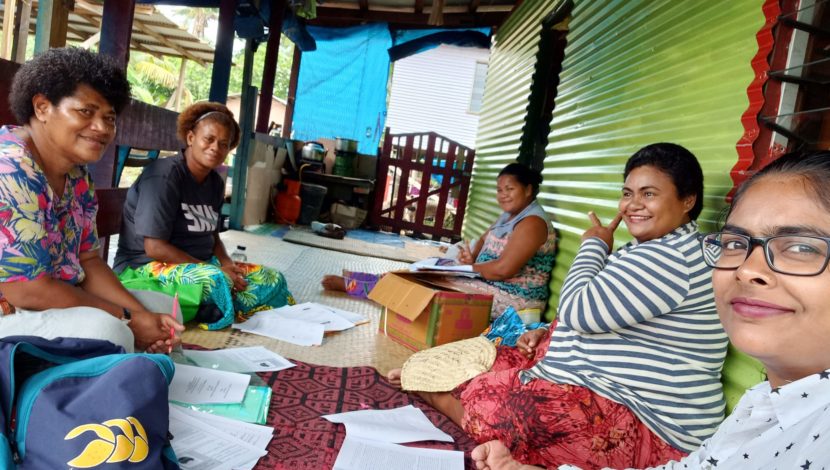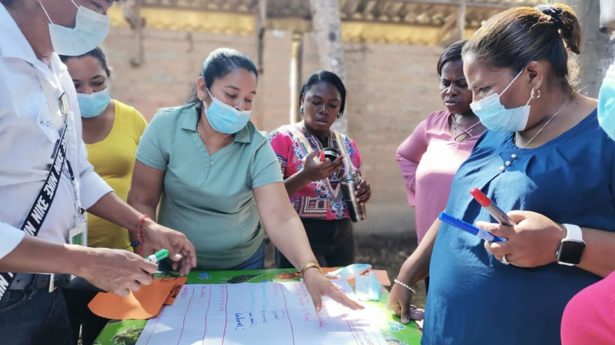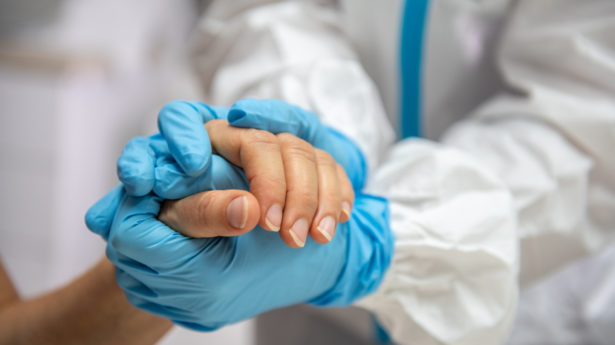The Unitarian Universalist Service Committee advances human rights through grassroots collaborations.
Two Years Later: Navigating the COVID Crisis (pt. 3)

By on May 19, 2022
After the COVID-19 pandemic hit and the entire world went into lockdown, life as we know it changed dramatically. In a short time, we all adjusted to new policies and practices to mitigate the spread of the virus. Many small businesses and organizations suffered from this sudden lockdown. UUSC partners have not been an exception. In 2021, UUSC reported how our partners dealt with COVID-19. This year, we are sharing how our partners have used UUSC grants and what they have done for their communities.
Social Empowerment and Education Program (SEEP) is a social justice organization network focused primarily on indigenous communities in Fiji and is a close, ongoing partner with UUSC. In mid-2021, UUSC provided specific funds for SEEP’s COVID response.
“The [funds] allocated for SEEP’s COVID response spread hope and faith amongst the communities that were grateful to receive this assistance,” said Makereta Waqavonovono of SEEP.
Despite the financial support from UUSC, the communities have yet another situation to face, and that is the economic downfall in the wake of the second wave of COVID.
“Toward the end of April 2021, Fiji began experiencing its second wave of the virus, with daily numbers going into double and triple digits,” Waqavonovono said. “Even though there have been reported COVID deaths, the Ministry of Health in Fiji chose to report these as deaths from a pre-existing condition.”
Poverty in Fiji also contributes to the fast spread of COVID among the communities. The urban poor and informal settlement communities face greater risks with regards to health and socioeconomic impacts.
“The lockdown and physical distancing measures are impossible to apply, especially with the lack of access to clean potable water, improved sanitation, and shared facilities. A household survey conducted by UN-Habitat in 16 informal settlements across four towns in Viti Levu found that 84% of households saw a loss of income and 40% of households reported that their income fell by more than half due to COVID,” said Waqavonovono.
Like the rest of the world, Fiji prepared as much as it could for the first wave of the pandemic. Fijian citizens were provided a one-off payment to help with household expenses and monthly stipends from Fiji’s largest financial institution, the Fiji National Provident Fund. Food rations, essential items, and groceries were also distributed periodically, with the assistance of SEEP.
With the second wave of COVID, which hit Fiji in April 2021, even those who were prepared felt lost and vulnerable. SEEP decided to employ an empowerment approach rather than one-off handouts.
SEEP members prioritized households with:
- A single or no income
- Elderly or persons with mental and/or physical disabilities
- A large number of small children
- Single heads of household, particularly grandparents as guardians for children
For rural partners, some of the SEEP partners have confirmed that food and access to food is not an issue, but health care is. The organization decided to send hygiene kits and update dispensaries.
“At the same time, arrangements were made with rural farmers to supply root crops at a discounted price for distribution as an addition to basic food items,” Waqavonovono said.
These were distributed between the ration packs as a form of continuity,” she added.
With SEEP’s weekly monitoring and check-ins with rural partners, priorities include distributing information, ensuring preparation for illness, and maintaining COVID protocols. This also includes re-stocking dispensaries.
UUSC has assisted the Lami and Raiwaqa health centers with the purchase of four nebulizer machines. Also, the funding has contributed to buying Ventolin nebulizer medication to be inserted into the machines that treat children and adults.
“It was reported that some health centers catered to more than 5,000 people, including the elderly and children, with only one working nebulizer and no other respiratory assistance machines,” said Waqavonovono. “Although nebulizers are not exactly respiratory machines, the communities have reported that they have assisted patients who have shortness of breath or wheezing.”
UUSC is proud to continue its partnership with SEEP and support providing invaluable medical rations, food supplies, and resources to communities across Fiji.
Photo Credit: SEEP

